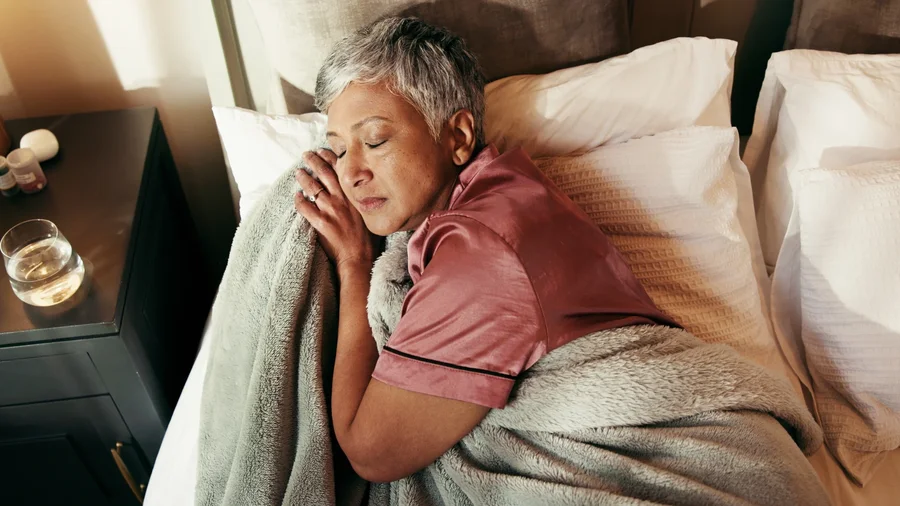
Although research on the link between sleeping positions and personality traits is relatively scarce, several studies examine the impact of sleeping preferences in this way.
For example, a person who sleeps like a "starfish" may prefer to be the center of attention, while those who sleep on their stomachs often share other interesting traits, such as impulsivity.
Even the little things that become a subconscious part of our routine can say a lot about our well-being and personality. From the state of our living space to the most comfortable position in bed, these little things reveal more than we think.
They seek comfort.
Clinical psychologist Michael J. Breus says that people who regularly sleep on their stomachs are more anxious, seeking control and closeness where they can find stability. This could be an increased nighttime alertness or an emotional turmoil that leads them to develop this anxiety. People who sleep on their stomachs usually seek comfort and closeness in bed to cope with the internal feeling of unrest and anxiety.

They are more sensitive than they think
Studies show that sensitive people feel more lonely and often have an empathetic personality that makes them tired during the day. At night, they may choose to sleep on their stomachs to feel a sense of control and order, using this position as a calming ritual.
Solve problems under pressure
Rituals that provide a sense of security help manage anxiety. Even though they are not physically connected to the ground, the connection to the bed gives them security and helps them cope with anxious thoughts and a disturbed nervous system.

They are impulsive.
Research shows that people who sleep on their stomachs or in the "total freedom" position are more impulsive, restless. They may be more rigid during the day, but at night they choose a soft and vulnerable position that gives them a sense of security.
They prefer to solve things themselves.
Strong determination is often linked to unresolved childhood trauma and difficulty opening up to others. Night tells a different story: they feel protected by sleeping on their stomachs, creating a sense of security.

Appear cold and reserved
Although they are warm and caring on the inside, they often appear cold or reserved on the outside. They may be self-soothe at home, but rarely seek emotional support from others during the day.
They are strong.
The sense of stability and independence within the bed transforms into unwavering strength. They take care of themselves and use their sleeping position as a way to cope with the emotional chaos of the day.

They love physical touch.
They value physical touch, but only on their own terms. Positive self-touch, such as hugging a pillow or yourself, reduces stress levels and helps with self-soothing.
They value ritual and routine.
People with consistent sleep routines have better quality sleep. Nighttime rituals serve as a "signal" for the brain to rest and emotionally unwind, bringing comfort that is lacking during the day.

They have strong intuitive instincts.
Instincts and intuition are often linked to impulsivity. They feel their bodies deeply, and the choice to sleep on their stomachs is often guided by intuition, providing security and emotional stability at night.










